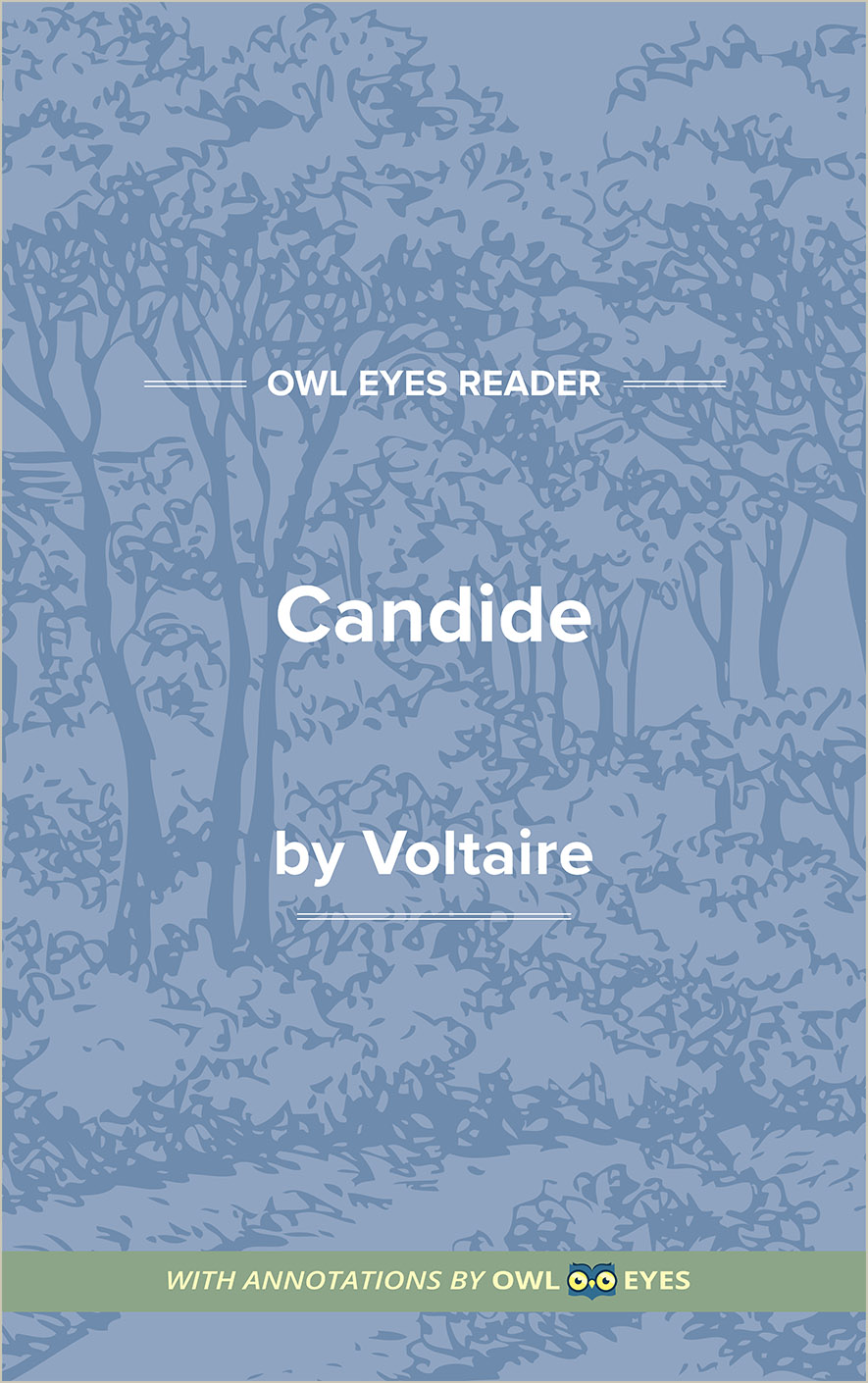Study Guide
Analysis Pages
Voltaire Biography
Article abstract: Voltaire encompasses in his work the extremes of rationalism during the Enlightenment. Until he was middle-aged, he was an Optimist, but in his sixties he rejected this philosophy in disgust and brilliantly argued the limitations of reason. He wrote prolifically in all literary forms during his lifetime, making critical commentary on prevailing social conditions and conventions.
Early Life
Voltaire was born François-Marie Arouet on November 21, 1694, in Paris. His father had migrated to the capital from Poitou and prospered there, holding a minor post in the treasury. Voltaire was educated at the Jesuit Collège Louis-le-Grand, and many years later the Jesuits were to be the objects of savage satire in his masterpiece Candide. Voltaire was trained in the law, which he abandoned. As a young man, during the first quarter of the century, Voltaire already exhibited two traits that have come to be associated with the Enlightenment: wit and skepticism. Louis XIV ruled France until 1715, and the insouciant Voltaire (not yet known by that name) and his circle of friends delighted in poking fun at the pretentious backwardness of the Sun King’s court.
1716, when Voltaire was twenty-two, his political satires prompted the first of his several exiles, in this instance to Sully-sur-Loire. He was, however, unrepentant; in 1717, more satirical verses on the aristocracy caused his imprisonment by lettre de cachet (without trial). During his eleven months in the Bastille, Voltaire, like so many imprisoned writers before him, practiced his craft. He wrote Œdipe (1718; Oedipus, 1761), a tragedy that was a great success upon the stage following his release. A year later, when Oedipus appeared in print, the author took the name Voltaire, an approximate anagram of Arouet. Such was his fame, however, that the pseudonym afforded him little chance of anonymity. He came eventually to be known as François-Marie Arouet de Voltaire.
Life’s Work
By the age of thirty, Voltaire was well established as a man of letters. For the next fifty years, he produced an enormous and varied body of work: tragic plays, satires in prose and verse, histories, philosophical tales, essays, pamphlets, encyclopedia entries, and letters by the thousands. Also by the age of thirty, he was a wealthy man. He speculated in the Compagnie des Indes with great success, and his fortune grew over the years. Voltaire’s personal wealth afforded him an independence of which few writers of the period could boast.
Still, his penchant for religious and political controversy had him in trouble again by 1726. The chevalier de Rohan caused him to be beaten and incarcerated in the Bastille for a second time. He was subsequently exiled to England, where he spent most of the period from 1726 to 1729. There, he learned the English language, read widely in the literature, and became the companion of Alexander Pope and other Queen Anne wits. La Henriade (1728; Henriade, 1732), his epic of Henry IV, was published during this period, and his sojourn in Britain would eventually produce Philosophical Letters. Voltaire’s great achievement during the years immediately following his return to France was his Histoire de Charles XII (1731; The History of Charles XII, 1732). This account of the Swedish monarch is often characterized as the first modern history.
Philosophical Letters, Voltaire embraced the philosophy of Optimism during these years, believing that reason alone could lead humanity out of the darkness and into the millennium. Gradually, his reputation was rehabilitated within court circles. He had been given permission to return to Paris in 1735, he was named official historiographer of France in 1743, and he was elected to the French Academy in 1746. In 1748, he published his first philosophical tale, Zadig.
Madame du Châtelet died in 1749. The next year, believing that Louis XV had offered him insufficient patronage, Voltaire joined the court of Frederick the Great of Prussia at Potsdam. For...
(The entire page is 2,002 words.)
Owl Eyes subscribers get unlimited access to our expert annotations, analyses, and study guides on your favorite texts. Master the classics for less than $5/month!

